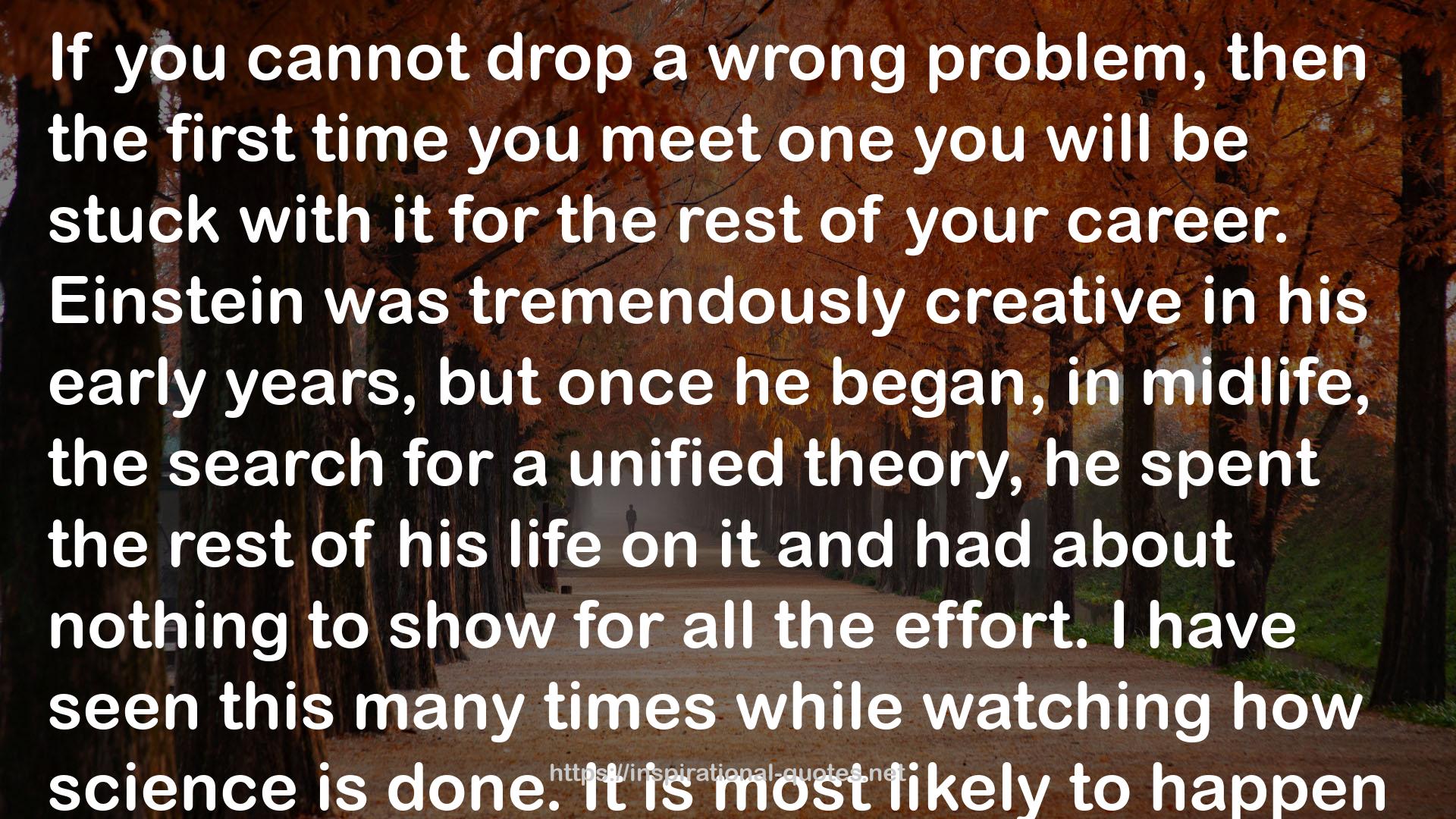" If you cannot drop a wrong problem, then the first time you meet one you will be stuck with it for the rest of your career. Einstein was tremendously creative in his early years, but once he began, in midlife, the search for a unified theory, he spent the rest of his life on it and had about nothing to show for all the effort. I have seen this many times while watching how science is done. It is most likely to happen to the very creative people; their previous successes convince them they can solve any problem, but there are other reasons besides overconfidence why, in many fields, sterility sets in with advancing age. Managing a creative career is not an easy task, or else it would often be done. In mathematics, theoretical physics, and astrophysics, age seems to be a handicap (all characterized by high, raw creativity), while in music composition, literature, and statesmanship, age and experience seem to be an asset. As valued by Bell Telephone Laboratories in the late 1970s, the first 15 years of my career included all they listed, and for my second 15 years they listed nothing I was very closely associated with! Yes, in my areas the really great things are generally done while the person is young, much as in athletics, and in old age you can turn to coaching (teaching), as I have done. Of course, I do not know your field of expertise to say what effect age will have, but I suspect really great things will be realized fairly young, though it may take years to get them into practice. My advice is if you want to do significant things, now is the time to start thinking (if you have not already done so) and not wait until it is the proper moment—which may never arrive! "
― Richard Hamming , The Art of Doing Science and Engineering: Learning to Learn
